Here are the best smoothies to help young athletes gain muscle, especially when they need lots of Calories! Many athletes struggle with a low appetite after games, yet this is a critical time to refuel in order to build muscle. Smoothies are an easy way for young athletes to make a nutritious and high-calorie drink that can serve as a meal replacement, pre-workout snack, and recovery after training.
Smoothies for Weight Gain
Teen athletes who train long hours can have a hard time getting enough fuel to support their growth, performance, and weight gain. Liquid nutrition is an easy way to double your calories at any meal or snack by drinking a smoothie instead of water.
Tips to Make High-Calorie Smoothies:
- Add carbohydrates: instant oats, cocoa powder, sherbert, pumpkin pie filling, frozen yogurt, dates
- Add fat: peanut butter, chia or hemp seeds, avocado, nuts, ice cream, coconut flakes, coconut yogurt
- Add protein: flavored Greek yogurt, protein powder, soft tofu, skim milk powder, cottage cheese
- Don’t use ice cubes, almond milk or water.
Instead of berries, use tropical fruits to add carbs to your high-calorie smoothies:
- Frozen mango
- Pineapple
- Banana
- Peaches
Best liquids to use for high-calorie smoothies:
- 1%, 2%, or 3% cow milk
- Soy milk
- Coconut milk
- Cream
- Chocolate milk
- Fruit juice
- Buttermilk
- Kefir
With so many milk options to choose from, it can be challenging to pick out the best option for your young athlete. To find the expert answer, check out this article: What Milk is Best for Young Athletes?
Should you add raw eggs to your smoothie? Myth !
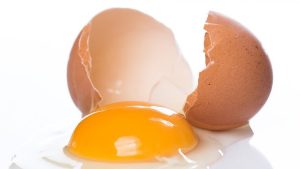
Do not use raw eggs in smoothies to avoid salmonella, which is a type of food poisoning. Pasteurized cartons of egg white are food-safe to add to smoothies. However, egg whites don’t taste as good as other protein options, so I don’t recommend them in smoothies.
Smoothies for Athletes Who Are Not Hungry
What do you do for an athlete who is not hungry, even when they need to eat?
 Common Reasons that Young Athletes Are Not Hungry:
Common Reasons that Young Athletes Are Not Hungry:
- Not hungry in the early morning before 6 am practice.
- Upset stomach right after a high-intensity training or game.
- Low appetite due to ADHD medication.
- Not want to eat solid food before a game.
- Nausea due to concussion symptoms or anxiety.
Smoothies aka “Liquid Nutrition” are much easier to consume than solid food, especially when an athlete isn’t hungry. It’s important to clarify that we are not trying to force-feed kids. Instead, we recognize that other factors like ADHD medication and high-intensity interval training have an appetite-suppressing effect that interferes with an athlete’s normal appetite.
Smoothies can replace an athlete’s breakfast, pre-workout snack, and recovery snack when they cannot tolerate much or any solid food.
Smoothies for Breakfast
Smoothies can be a complete meal replacement for the young athlete who is not hungry for breakfast. A male teen athlete needs 500-800 calories for breakfast, whereas a female teen athlete may need 300-600 calories for breakfast, depending on their age, size, growth, and training. You may want to make a higher-calorie smoothie if your goal is to gain weight. You may prefer a lower-calorie smoothie before early morning practice if you don’t want to be too full and can have a bigger breakfast afterward.
For a meal plan that outlines how much your athlete needs to eat in a day, book an individual nutrition consultation with Cristina Sutter today.
Smoothies for Every Day
Some people may worry that fruit smoothies have too much sugar, but young athletes who train several hours a day and are trying to gain muscle NEED that sugar for energy! Smoothies are nutritious and balanced for everyday use. Make sure you add protein and fat alongside the fruit and milk in your smoothie, to create a balanced and nutritious snack.
Smoothies for Pre-workout
Preworkout smoothies should be high in carbohydrates, moderate in protein, and moderate to low in fat. These high-carb smoothies deliver glucose quickly into the muscle to fuel high-intensity training. If you are training within an hour, limit fat and dairy milk as these take longer to digest and can upset the stomach while exercising.
Protein in Smoothies
Smoothies should include 15-30 grams of protein. There is no advantage to having more protein for the athlete. Every scoop of protein powder has 30g of protein so DO NOT have more than one scoop at a time! You can get 30 grams of protein from one cup of milk and one cup of Greek yogurt, which makes the tastiest smoothies anyway! For more information on amounts of protein from foods and different protein powders, see this blog: How Much Protein Do Young Athletes Need?
Remember that carbohydrates are the athlete’s main source of fuel for athletic performance so that is the ingredient you want to load into your smoothies. Read this blog for For Everything Athletes Need to Know about Carbohydrates.
Smoothies for Recovery
Recovery nutrition is critical to kick-start muscle adaptation and building immediately after every training session and game. The first 30 minutes after training is the optimal recovery window for an athlete to refuel and replenish. The ideal recovery snack has 30-50 grams of carbs and 10-15 grams of protein. Smoothies are the best recovery snacks because they have the right proportion of carbs and protein and they rehydrate you too.
Adding tart cherry juice to a Recovery Smoothie helps promote muscle strength recovery and reduces muscle pain after intense training or tournaments. Tart cherry juice is known for its exceptionally high antioxidant and anti-inflammatory polyphenols that neutralize oxidative stress and get your muscles back to their peak performance. Check out a scientific review of tart cherry juice here: Tart Cherry Juice .
Add 1 oz of TCJ concentrate twice a day in the days before a tournament and immediately after each competition to promote faster recovery.
High Calorie FUN AND TASTY Smoothies for Athletes:
WEIGHT GAIN Smoothies:
These smoothies are high in calories, fat, and protein
Reese’s Chocolate, Peanut Butter Shake
620-820 Calories, 45g protein
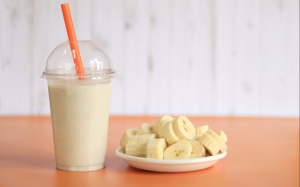 1-2 cups Chocolate milk
1-2 cups Chocolate milk
1 scoop of Chocolate protein powder
1-2 frozen bananas
2 Tbsp peanut butter
Optional: if you don’t have chocolate milk, use white milk + cacao powder
Strawberry Milkshake
550 calories, 20g protein
1 cup 3% milk
½ cup ice cream
1 cup frozen strawberries
1 pack carnation instant breakfast
Pina Colada Smoothie
600 calories, 10g protein
½ cup coconut milk
½ cup pineapple juice
1 cup frozen pineapple
1 frozen banana
½ cup vanilla Greek yogurt
1/8 tsp vanilla
RECOVERY Smoothies:
These smoothies are high in carbs, moderate in protein and low in fat.
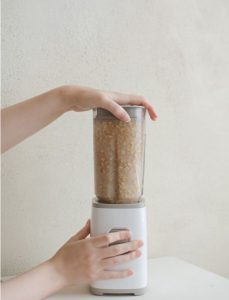
Granola & Blueberry Smoothie
600 calories, 20g protein
¼ cup Granola
½ cup Greek Yogurt
1 cup frozen berries
1 banana
1 tsp honey
1 cup milk
PREWORKOUT Smoothies:
This smoothie is high in carbs, low in protein and fat and fast to digest!
Orange Creamsicle Smoothie
400 calories, 15g protein
1 cup vanilla 4% Greek yogurt
1 cup orange juice
1 cup frozen mango
BREAKFAST:
These smoothies are packed with nutrition, calories and balanced nutrients as a meal replacement.
Breakfast Smoothie
700 calories, 30g protein
¼ cup ground instant oats
1 cup milk
1 cup frozen berries
1 cup Greek yogurt
½ frozen banana
¼ avocado
2 Tbsp hemp hearts
Maple Walnut Shake
600 calories, 30g protein
1 cup milk
1 frozen banana
¼ cup walnuts
1 scoop vanilla protein powder
1 Tbsp maple syrup


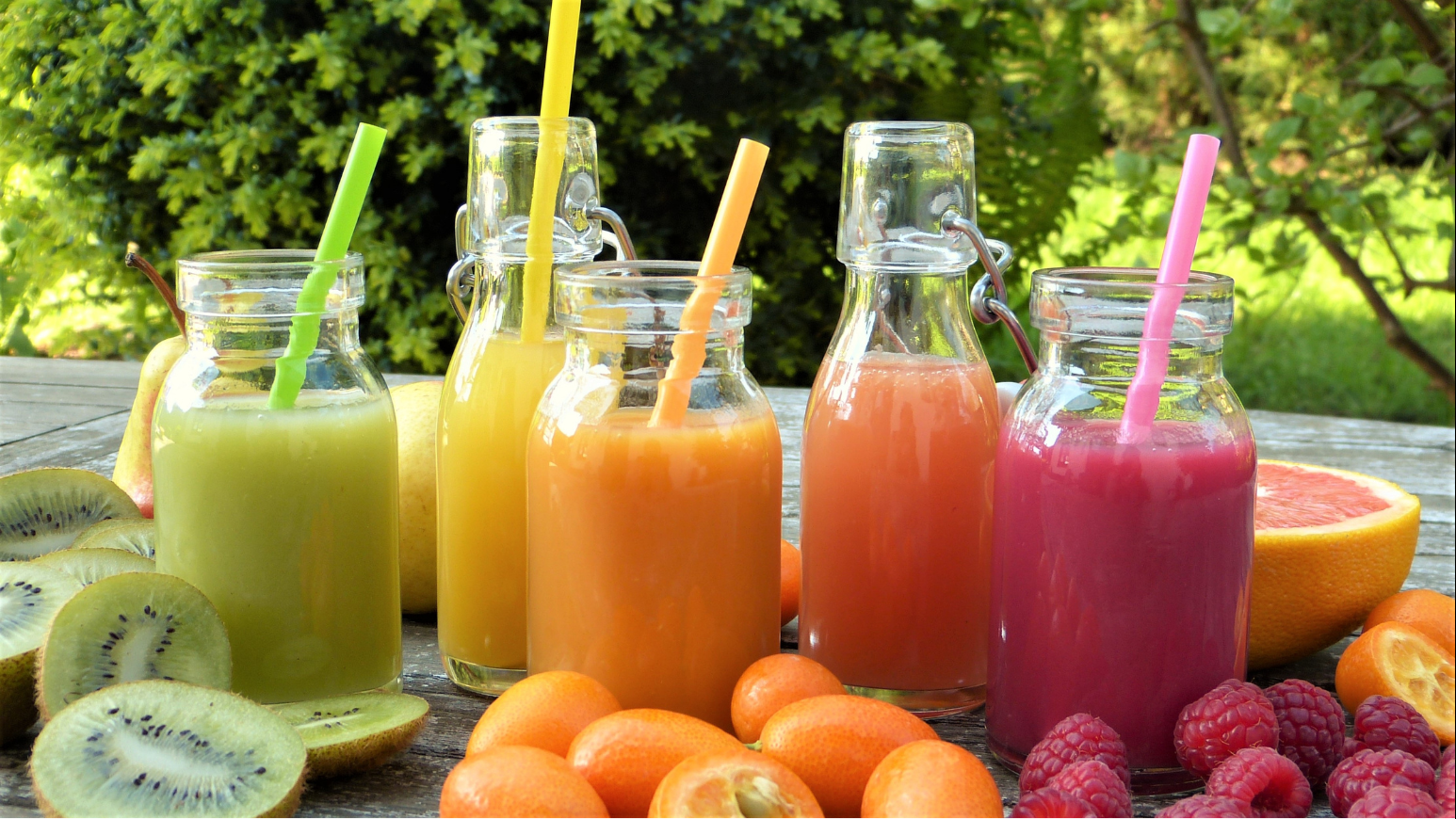
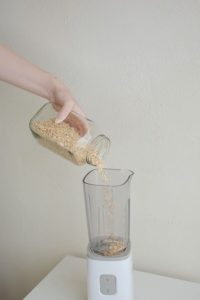
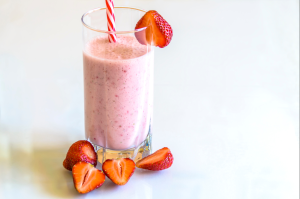
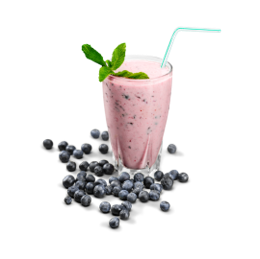
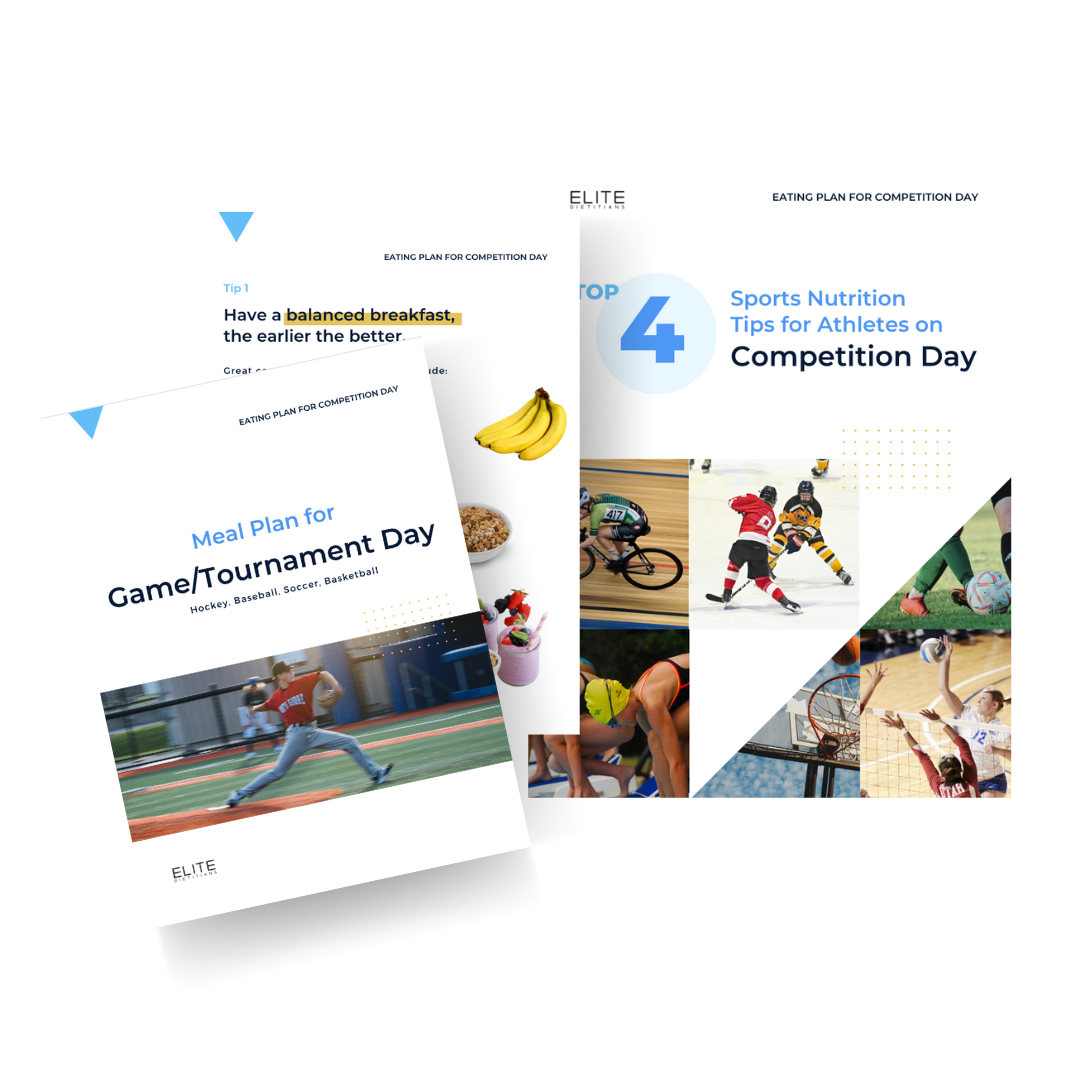


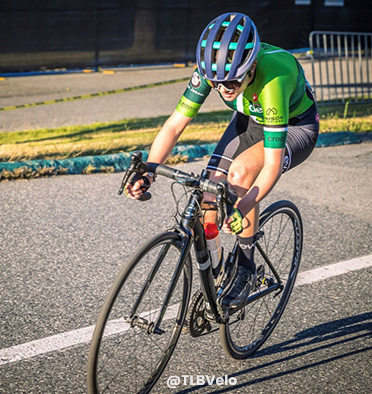


One Comment